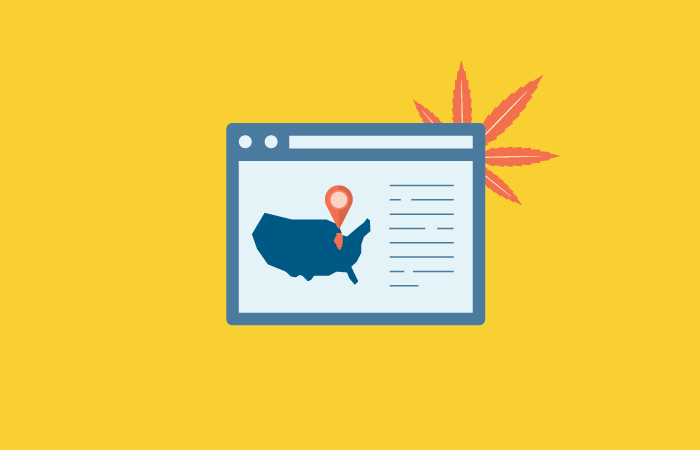The coronavirus pandemic has significantly altered our day-to-day lives. Shelter-in-place initiatives have shut the doors of many businesses – from mom-and-pop shops to department store giants – leaving millions unemployed and the federal government scrambling to provide relief. One industry that has been relatively untouched, both from an economic standpoint and from a federal relief standpoint, is cannabis-related businesses (CRBs). Although cannabis is illegal on a federal level, it is legal – in some form – in most states today. While “non-essential” businesses closed amid the coronavirus, most states deemed cannabis- and marijuana-related businesses essential. The pandemic has highlighted the importance of the industry, while also resurfacing the challenges associated with banking CRBs.
Will Cannabis Banking Turn Over a New Leaf After COVID-19?
Cannabis-related businesses thrive during the pandemic, no thanks to federal relief
One of the reasons financial institutions have avoided banking CRBs is because many feel the industry had been untested. The coronavirus pandemic has challenged a lot of industries, and many have been surprised by the resiliency of CRBs. The dichotomy between federal and state laws surrounding cannabis has created a perception that CRBs are on shaky ground, and many worried that the industry would crumble when tested. However, that has not been the case in this scenario. Whether for medical only or for adult use, most state governments deemed CRBs essential. These businesses have proven to be strong, and some have even grown during this uncertain time.
Despite their essential nature, however, CRBs have been left out of federal stimulus programs, like the Paycheck Protection Program (PPP), meant to help small businesses. Because CRBs derive revenue from a federally illegal substance, they are disqualified from applying for such loans. However, the latest stimulus bill, the HEROES Act, did include a section dedicated to the “SAFE Banking Act of 2020” and banking CRBs. Although the HEROES Act is not expected to pass in the Senate, it’s promising for financial institutions to know that the issue is still getting attention. CRBs are real, essential businesses paying federal taxes, and many argue that they should be included in federal programs.
Know who you're banking with CRB monitoring
learn moreCRBs remain largely underbanked, despite growth
As the cannabis industry grows, even during this uncertain time, it faces a shortage of financial services. During the recent Abrigo webinar, “The Opportunity Cost of Avoiding Cannabis Banking During COVID-19,” just 14% of respondents answered that they are already banking CRBs in a poll. While nearly a third (36%) are decidedly not banking CRBs, half of respondents haven’t shut the door completely, with 28% saying they plan to bank CRBs but haven’t started, and 22% undecided. CRBs remain dramatically underbanked due to heightened risks and fears of federal prosecution. In September 2019, the House passed the SAFE Banking Act, which would provide protections for financial institutions servicing legal CRBs and MRBs. The SAFE Banking Act garnered bipartisan support and passed easily in the House, but it has been tabled in the Senate amid the coronavirus. Legislation efforts have understandably shifted on both a state and federal level, and the efforts to pass CRB legislation has stalled on nearly all fronts.
“There are lot of similarities between CRBs and community FIs: Both are community-focused businesses both rely heavily on human-human interaction, and despite everything that’s going on, both largely are experiencing growth,” said Mike Kennedy, Head of Product at Abrigo, during the webinar. “The takeaway here is less about the financial support and relief that these businesses need, and more about the broader access to banking as a whole.” As these businesses grow, so does the need to move into contactless payments and away from cash, or at least be able to safely transport and store cash if that is the only payment option available. Furthermore, Kennedy says CRBs should be able to leverage financial services to make critical business decisions “rather than the general ledger based on the safe they’re keeping their entire business in.”
Changing banking CRB obligations, perceptions
When businesses were setting their plans and strategies in January, there were likely very few that had accounted for a global pandemic. Likewise, the trajectory for the cannabis industry has fundamentally changed due to COVID-9. It’s important for institutions that are interested or are banking the cannabis industry to understand the ways that the businesses have transformed, and how legislation has been affected by the crisis itself. “Financial institutions banking CRBs have an obligation to understand how the businesses are working, so you can identify any potentially concerning behavior, like operating changes,” said Paul Dunford, Director of Program Development at Abrigo. And they have. Because of social distancing, some dispensary facilities have closed and have shifted to curbside delivery for cannabis. Other states, like California, allow for home delivery. “If you’re banking a dispensary, you should talk to them to understand how their operating model has changed, so you can stay on top of that business,” Dunford urges.
While the obligations have changed for financial institutions that bank CRBs, the perceptions of banking this industry have also shifted. Before, many financial institutions expressed the fact that they do not want to be associated with the industry. “There’s this notion that because it’s illegal, it’s scandalous, and the institution doesn’t want to be the ‘weed bank,’” Dunford said. The essential nature of CRBs, as well as their proven stability and contribution to tax revenue, will hopefully begin to normalize the industry. When legislative focus shifts away from the coronavirus, it’s not unlikely that states will expand their programs – will financial institutions do the same? There is a substantial need for financial services by the cannabis industry, and there is a significant opportunity for financial institutions who choose to bank CRBs. While there is hope for federal legislation in the near future to relieve financial institutions of some of the risks banking CRBs carries, in the meantime, banks and credit unions should be taking measures today to bank this industry safely if it fits within the institution’s risk profile.






